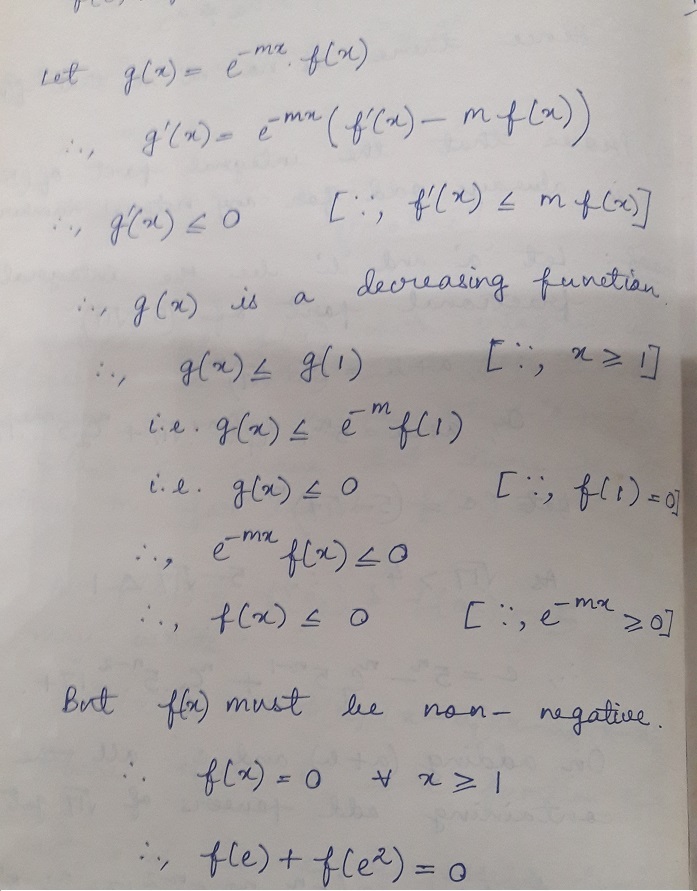An interesting function
is a non-negative function defined for such that the inequality holds everywhere in the domain for some positive real number . If then find the value of .
The answer is 0.
This section requires Javascript.
You are seeing this because something didn't load right. We suggest you, (a) try
refreshing the page, (b) enabling javascript if it is disabled on your browser and,
finally, (c)
loading the
non-javascript version of this page
. We're sorry about the hassle.
Here is my solution.